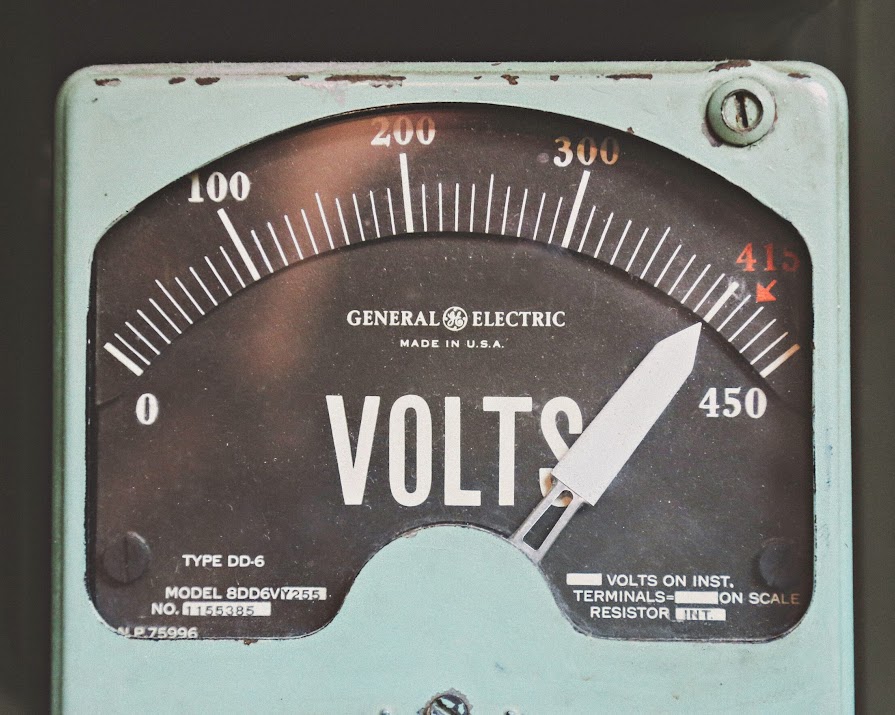
By Victoria Stokes
25th Apr 2024
25th Apr 2024
Sponsored By

Could balancing your blood sugars boost your performance at work? We look at the latest health tech innovations and talk to an expert to find the answer
It’s 3pm and you can feel your energy plummet. Suddenly, you find it difficult to concentrate, the words on the screen mingling together, no longer seeming to make sense.
Feeling sluggish, you reach for the quickest energy source you can find – that tray of doughnuts in the office canteen or a sugary snack you have hidden in your desk drawer. But the high is short-lived.
Before long, you’re stifling yawns, getting irritable with your colleagues, and making next to no headway on your to-do list. It’s a familiar tale, one that could be impacting your performance and productivity at work.
Maybe it’s the heavy workload you’re facing, the lack of sleep you got at the weekend, or your overreliance on caffeine.
According to the latest wave of wellness wisdom, your blood sugars could very well be to blame and, in the age of burnout, keeping them in check could be the key to getting ahead in the world of work.
Continuous glucose monitors
Enter the newest innovation in health tech: Continuous Glucose Monitors (CGM)– nifty biosensor devices that give you personalised data about how certain foods and lifestyle factors impact your blood sugar levels and in turn your ability to get sh*t done.
Originally created for people who are diabetic, CGMs have quickly become a valuable tool for anyone wanting personalised insights on how the foods they eat affect their blood sugars, and in turn every aspect of their metabolic health, from food cravings and sleep to mood, energy, and focus.
Brain fog
Research shows that sugar spikes and crashes majorly contribute to cognitive decline, often leading to brain fog, reduced memory, and decreased blood flow in the brain.
So, could keeping your blood sugars in check – be it by wearing a CGM, making a few mindful lifestyle tweaks, or a combination of both – nix the 3pm slump and boost your performance and productivity at work?
Fueling the brain
“When we think about productivity specifically, I like to think of glucose as brain fuel. And for proper brain function, you need to balance your glucose exposure because too little or too much glucose can throw off your concentration,” explains Pamela Nisevich Bede, Global nutritionist for Lingo Abbott.
A quick primer if you’re a nutrition newbie: foods that are high in processed carbohydrates (also known as high GI) cause rapid spikes in blood glucose, while foods that are low GI cause a more gradual rise in blood glucose.
To ensure optimal energy, focus, and mood, you want to avoid any unnecessary spikes and crashes by eating more of the latter.
As well as providing significant benefits, Pamela says keeping your glucose levels steady will result in less fatigue, improved mood, and better focus, all of which support you in getting more done.
Individual response
But here’s where things get tricky. Nutrition isn’t one size fits all. Blood sugar response is highly individual and we don’t all respond to the same foods in the same way.
What’s more, you don’t need to be indulging in doughnuts or drinking two-litres of coke to see blood sugar elevations.
Research shows that healthy people can experience diabetic-level glucose spikes on a daily basis – and for some people, healthy foods, like oats, brown rice, and beans, are enough to trigger a rapid increase of sugar in the blood.
Pamela says this is where monitoring your body’s personal responses with a CGM like Lingo can be incredibly valuable. The Lingo biosensor, app, and proprietary glucose spike detection algorithm work together to translate your daily glucose patterns into a simple Lingo Count system.
By measuring your blood sugar response in real time, you might notice that you perform better when you pair your 3pm chocolate hit with a source of protein and fat, or that walking after you eat keeps your glucose steady, allowing you to be more focused in the afternoon.
Without the data, it can be very difficult to know what’s actually going on.
“By having an understanding of our glucose metrics, we gain insights into the way our body personally responds to the foods we eat, activities we engage in, individual stressors, and other lifestyle habits,” Pamela says.
Better blood sugar control
So, now that you know how important blood sugars are in your quest to get sh*t done, what can you do to ensure better blood sugar control, and in turn say ‘see ya’ to those irritating energy slumps that scupper your working day?
It’s not about completely overhauling your habits, or banning any of your favourite foods, but about tweaking your current lifestyle to enhance your performance.
Grabbing a pastry on your way to work may be tempting, but Pamela says eating a balanced breakfast will give you the best start to the day.
“Choosing a high protein, low-glycaemic breakfast will start your day off on the right foot for steady energy, so opt for something with at least 30 grams of protein and some healthy fats and fibre,” she advises.
It doesn’t have to be dull. Some of Pamelia’s favourite brekkies include egg omelettes with veggies and a side of lean sausages or Greek yoghurt with berries and a whey protein shake.
Reading this after eating an unbalanced breakfast? Don’t panic. Pamela says you can still turn things around.
“A smart lunch choice can improve your energy levels and mood so you don’t get sleepy and grumpy around your colleagues in the afternoon,” she points out.
“Try a tuna and avocado wrap, grilled chicken salad with an oil-based dressing, a buffalo chicken salad sandwich, or a salmon and veggie bowl to keep you full, steady your glucose, and give you energy,” she advises.
Some good news: there’s also room for snacks. Pamela says it’s important to keep some healthy snacks on hand so you aren’t tempted to grab sugary, carb-heavy convenience foods when the need to nosh hits mid-afternoon.
“Try eating about a handful of pistachios (40 grams), a hardboiled egg with raw vegetables, oats with almond butter and a scoop of high-quality protein powder, or some full-fat Greek yoghurt with berries,” she suggests.
Where possible, try to avoid processed foods. “Not only do these foods typically deliver a quick-to-digest source of fleeting energy, they’re also designed to compel you to eat more,” Pamela explains.
It’s not all about diet…
It’s not just dietary choices that make a difference. Exercise plays a part too. Try getting out for a 10 minute way around the block after eating, as movement can help to prevent blood sugar spikes.
“This can keep glucose steady and energy levels high by stimulating the circulation of fresh oxygenated blood and nutrients to your muscles and brain,” Pamelia explains.
Stress management is also key. “Unmanaged stress can cause glucose spikes and crashes,” Pamela explains.
“If you’re feeling stressed at work, take a short break to sip some chamomile tea, do some stretches, or call a friend,” she suggests.
“Deep breathing exercises might also relieve stress and boost energy,” Pamela adds.
Burnout
Packed to-do lists, competing commitments, and burnout have become part and parcel of our working lives – and feeling like you don’t have the energy or focus to power through only adds to the pressure.
Energy slumps are frustrating, and we can’t always negate them, but by getting better acquainted with your body’s blood sugar response, and finding ways to work with it, you might just find you’re better equipped to power through.























